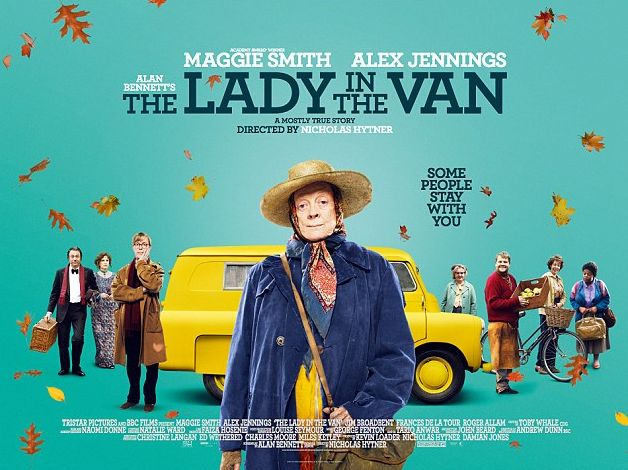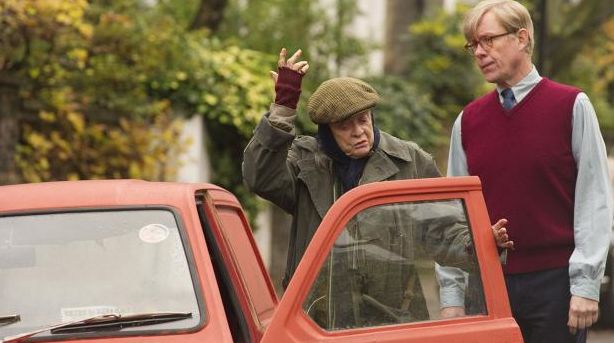
"The Lady in the Van" Review
 Maggie Smith tries her hardest, but this "mostly true" story never really kicks into high gear.
Maggie Smith tries her hardest, but this "mostly true" story never really kicks into high gear.
Dame Maggie Smith is approaching her 81st birthday, but age isn't slowing her down one bit. The veteran actress is in the midst of an impressive renaissance. She's been the quintessential player in the PBS drama "Downton Abbey" and has given great performances in both "The Best Exotic Marigold Hotel" and its even better 2015 sequel. Smith plays "The Lady in the Van" in a quirky silver screen adaptation of Alan Bennett's memoir and play. Her performance isn't worthy of a third Academy Award or even an honorary-esque nomination, though her work here and this "mostly true" story are quite unique.
It's the mid-1970s and Smith's Mary Shepherd is homeless, living in her van, which she'll soon paint bright yellow. She travels up and down suburban London streets looking for a place to park her house on wheels. No one in the neighborhood wants her anywhere near their home. Shepherd attaches herself to Bennett (played by Alex Jennings), a local playwright and actor, and he allows her to keep the van in front of his house, and eventually, move it into his driveway.

Shepherd doesn't decipher much of her past, though clues indicate to Alan that she may be a possible subject to write about. He wonders, obviously, how she ended-up this way, learns she was once a nun, and can't understand why she is so bothered by music. Other mysteries arise as their time together grows. In an interesting cinematic device, Alan is presented as two people, because he is constantly in two frames of mind about Shepherd: the timid "care-taker" (his true persona) and the more confident writer. The screenplay, written by Bennett himself, does include some smart dialogue between his split personalities, but I wish this element didn't dominate so much of "The Lady in the Van". Having the two Alans constantly analyzing Shepherd is very distracting as we're trying to figure-out this old woman ourselves.
"The Lady in the Van" is much stronger in its dramatic moments than when it tries to be funny, though some sarcastic lines from Smith and others do hit the mark. A few subplots are decent, though it all leads to a rather clumsy/corny finale. Passed by an act of Parliament, the law requiring Jim Broadbent to appear in at least one scene in every British film, is in full force, as he has a small role as a bad guy (for a change). And both James Corden and Dominic Cooper have cameos. The highlights of Smith's performance are two scenes near the end, though they, like the entire film, fail to fully ignite our interest.


